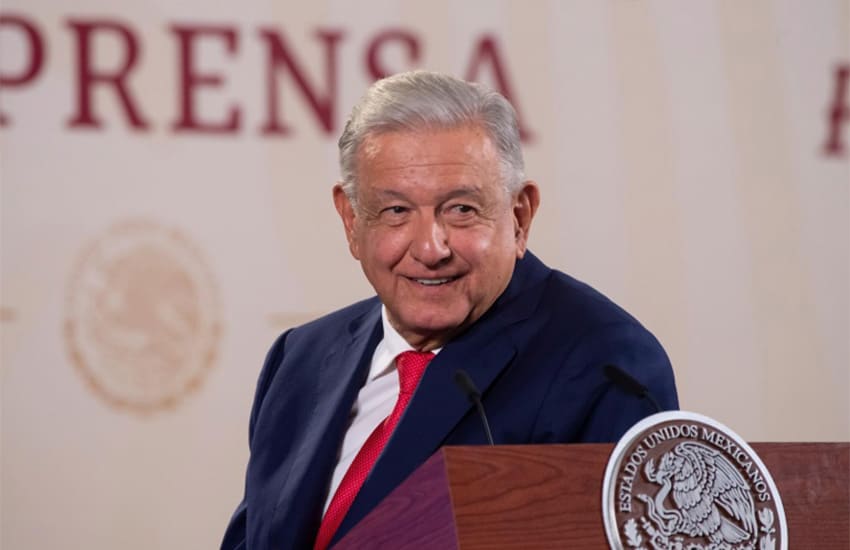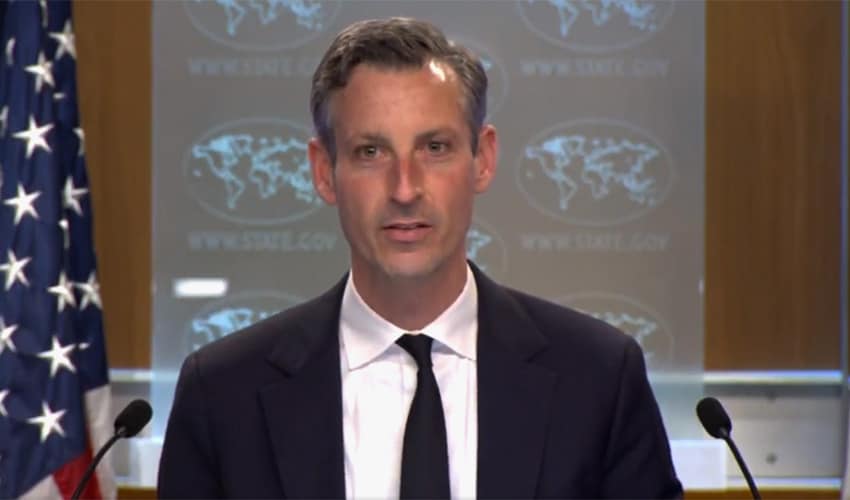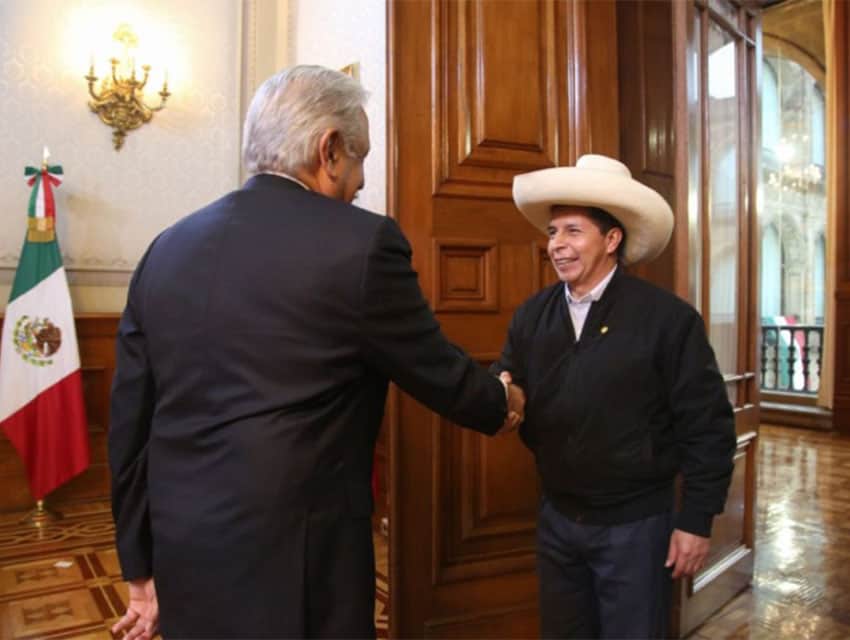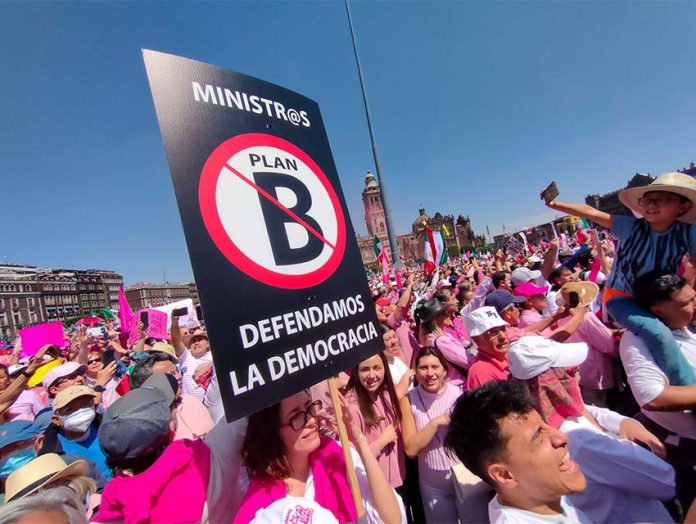Democracy is in better shape in Mexico than in the United States, President López Obrador asserted Tuesday after the U.S. Department of State released a statement on Sunday’s protests against the federal government’s recently-approved electoral reform package known colloquially as “Plan B.”
“With all respect, I say to Mr. [Antony] Blinken of the State Department that there is currently more democracy in Mexico than in the United States,” the president said at his regular news conference.

“… When I say that we have more democracy than them it’s because the people rule here and the oligarchy rules there,” López Obrador said.
He said he was willing to have a debate on the issue and claimed he had “evidence to prove there is more liberty and democracy in our country.”
The president’s remarks followed the publication on Monday of a statement from U.S. Department of State spokesperson Ned Price on the “protests against electoral overhaul in Mexico.”
“Healthy democracies benefit from strong institutions and a plurality of voices,” Price said. “The United States supports independent, well-resourced electoral institutions that strengthen democratic processes and the rule of law.”
Around the world, the United States has “witnessed challenges to democracy that have tested and are testing the strength of independent electoral and judicial institutions,” Price said, adding that in Mexico, “We see a great debate on electoral reforms, on the independence of electoral and judicial institutions, that illustrates Mexico’s vibrant democracy.”
Approved by the Senate last week, the López Obrador-backed “Plan B” electoral reform laws will slash the budget of the elections oversight body, the National Electoral Institute (INE), and therefore force the dismissal of staff, diminish its capacity to sanction politicians who violate electoral laws, curtail its autonomy and close some INE offices, among other consequences.

Price said that the United States respects Mexico’s sovereignty but “we believe that a well-resourced, independent electoral system and respect for judicial independence support healthy democracy.”
Brian A. Nichols, assistant secretary of state for Western Hemisphere affairs, conveyed a similar message on Twitter on Sunday.
López Obrador advised the United States — specifically the State Department — to concern itself with what’s happening in Peru rather than “meddling” in Mexico’s affairs.
AMLO has repeatedly denounced President Pedro Castillo’s removal from office by the Peruvian Congress last December and described the government of President Dina Boluarte as illegitimate and “spurious.”
The United States ambassador in Peru, Lisa Kenna, is “the adviser of the coup plotters who trampled on freedoms and democracy in that country, ousting the president and imprisoning him,” he said Tuesday.

López Obrador said that the United States still hasn’t abandoned the 200-year-old Monroe Doctrine and considers itself “the government of the world.”
“They always interfere in affairs that don’t concern them,” he said while defending U.S. President Joe Biden and his support for “equality” among nations.
The president — who has rejected claims that the electoral reform places the staging of free and fair elections at risk while touting the billions of pesos in annual savings it will generate — also took the opportunity to denounce the United States’ media coverage of Sunday’s protests.
“Yesterday, for example, the newspaper that is possibly the most influential in the world in economic and financial terms, The Wall Street Journal, had eight columns and a photograph on the march of the corrupt because that newspaper and others in the United States protect the mafias of economic power in the world,” he said.
With reports from Expansión Política and Reforma
